We are always looking for talented graduate students and postdocs for my group in the Racah Institute in the Hebrew University of Jerusalem. Details
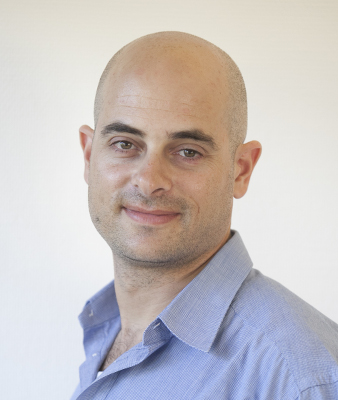
Amir Erez, Group Leader
Senior Lecturer (Assistant Professor)
Racah Institute of Physics
Hebrew University of Jerusalem
Interested in all aspects of how nature works! Trying to understand living systems, including: microbes, ecology, data/ML/AI, host-microbiome-immune, and everything else.
My group develops theory and analyze data, in collaboration with experimental groups, looking for principles that govern microbial community dynamics and how the microbiome interact with their host.
My background and training are in theoretical physics, wet-lab immunology, microbiome bioinformatics and computer science. I borrow techniques from statistical physics, nonlinear and stochastic dynamics, numerical simulations, and machine learning and big data analysis, with a close attention to experiments. More information about the group’s research focus can be found here.
Links: Linkedin, Google Scholar, ResearchGate, GitHub, Publons, ORCID
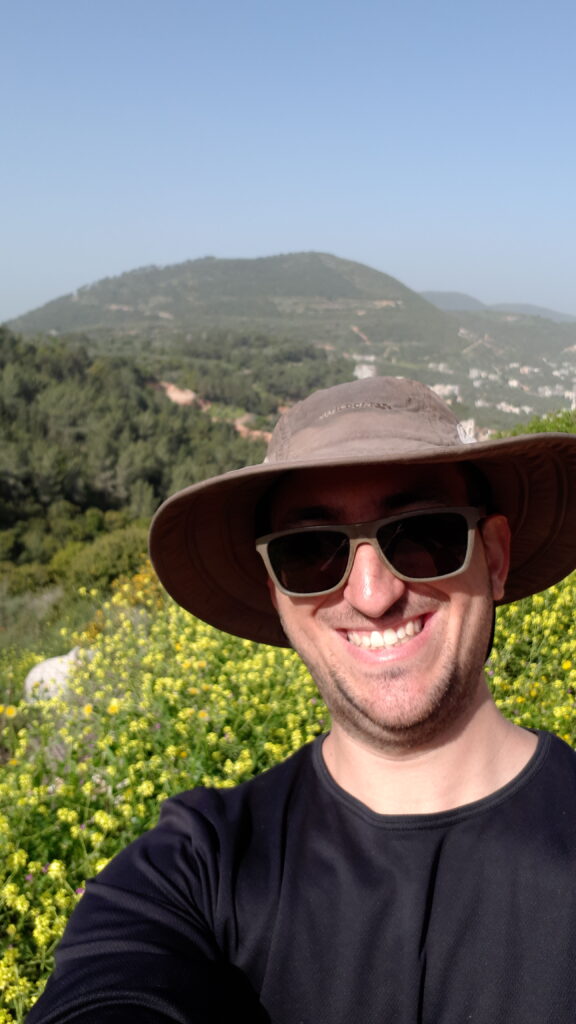
Moshe Alon
Postdoc
I’m a postdoc in Omri Finkel’s microbial ecology lab, working in collaboration with Amir Erez. I hold a B.Sc. in physics from the Hebrew University, an M.Sc. in plant ecology from Tel-Aviv University and a PhD from the Hebrew University. My scientific interests so far have been going from the largest scale (community and ecosystem ecology) down to the smallest scale (microbial ecology) with increasing levels of complexity. Generally, I’m interested in large-scale patterns of plant geographical distributions and the abiotic and biotic factor which determine them, with an emphasis on the influences of soil microbial communities and plant-microbe symbioses.
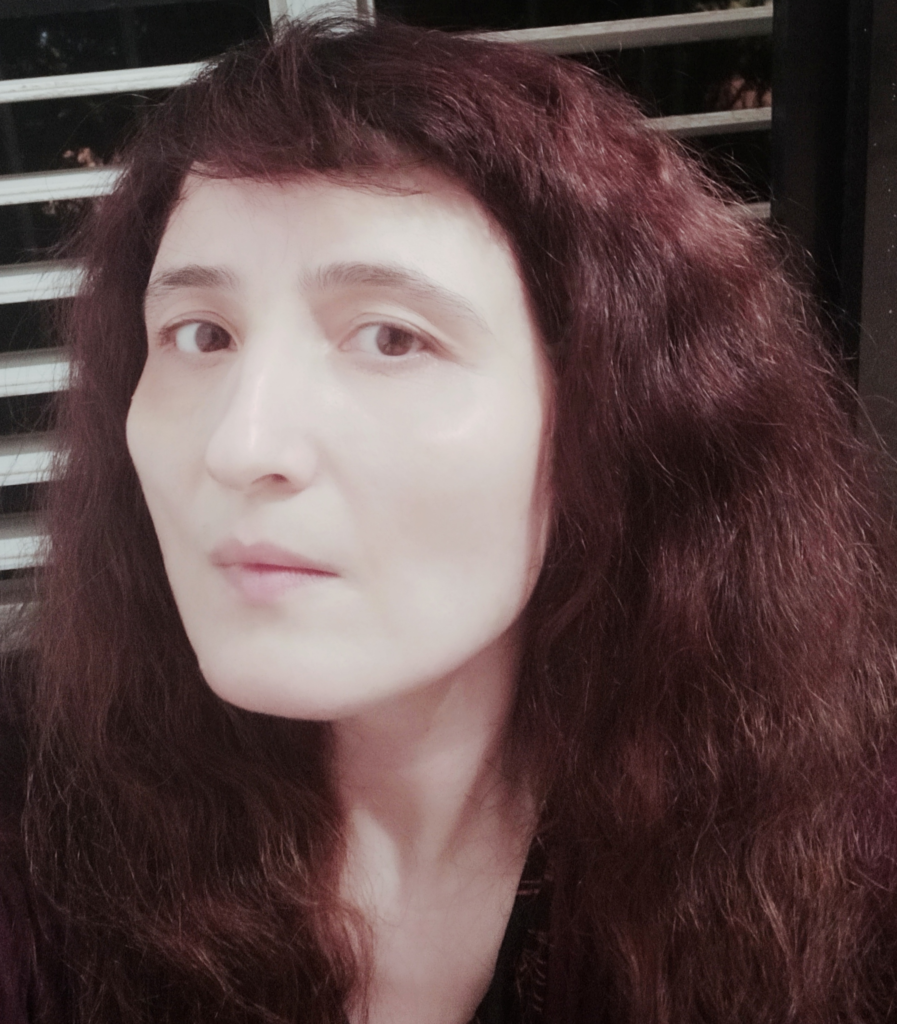
Yulia Fridman
Ph.D student
I am a Ph.D. student at the Racah Institute of Physics. I did both my M.Sc. and B.Sc. theses at the Institute of Natural Sciences and Ecology (currently a department of MIPT), both on the subject of instabilities in (self-)gravitational hydrodynamics and plasma physics. Then I worked for a while at Kourchatov Institute in Moscow, at first in the field of plasma physics, later in biophysics (microbial community forming, consumer-resource models). I am interested in collective processes, both in fluid mechanics and in ecology.
I am currently working on modeling transitional states (“lags”) of a microbial population.
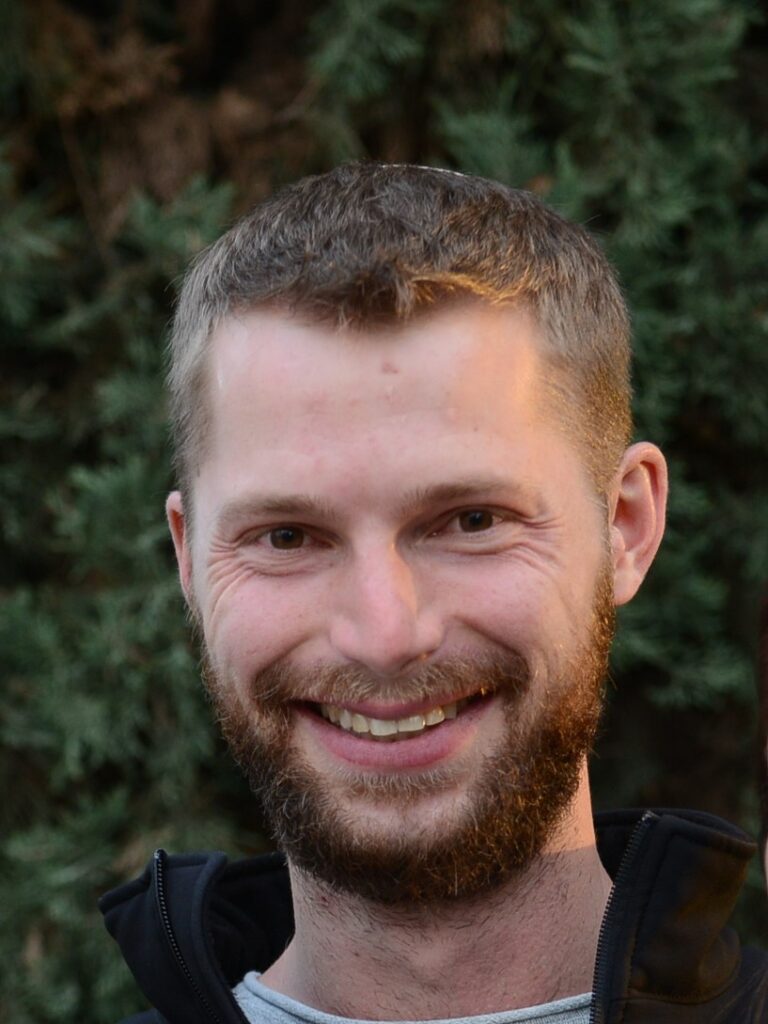
Yehonatan Levin,
MSc. student
I am a master’s student at the Racah Institute and did my B.Sc. in computer science and physics. I’m interested in the intersection between the two fields, specifically in areas like ML for physical/biological research and information theory, including quantum information. I currently work on understanding the mutual effects between gene expression, the microbiome, and antibiotics. Using different learning algorithms I try to cluster the genes and to understand the correlations among them.
Undergraduate and Graduate Research Assistants
- Amit Yehuda – Development of AI approaches to connect microbiome composition and host response.
- Evgeniya Mogilevski MSc. – Development of AI approaches to connect microbiome composition and host response.
- Arad Tal – AI approaches in understanding oxalate metabolism in the plant root environment.
- Ariel Raviv – AI approaches in understanding oxalate metabolism in the plant root environment.
- Dmitry Alekhin MSc. – Using large language models to classify metagenomic data.
Alumni
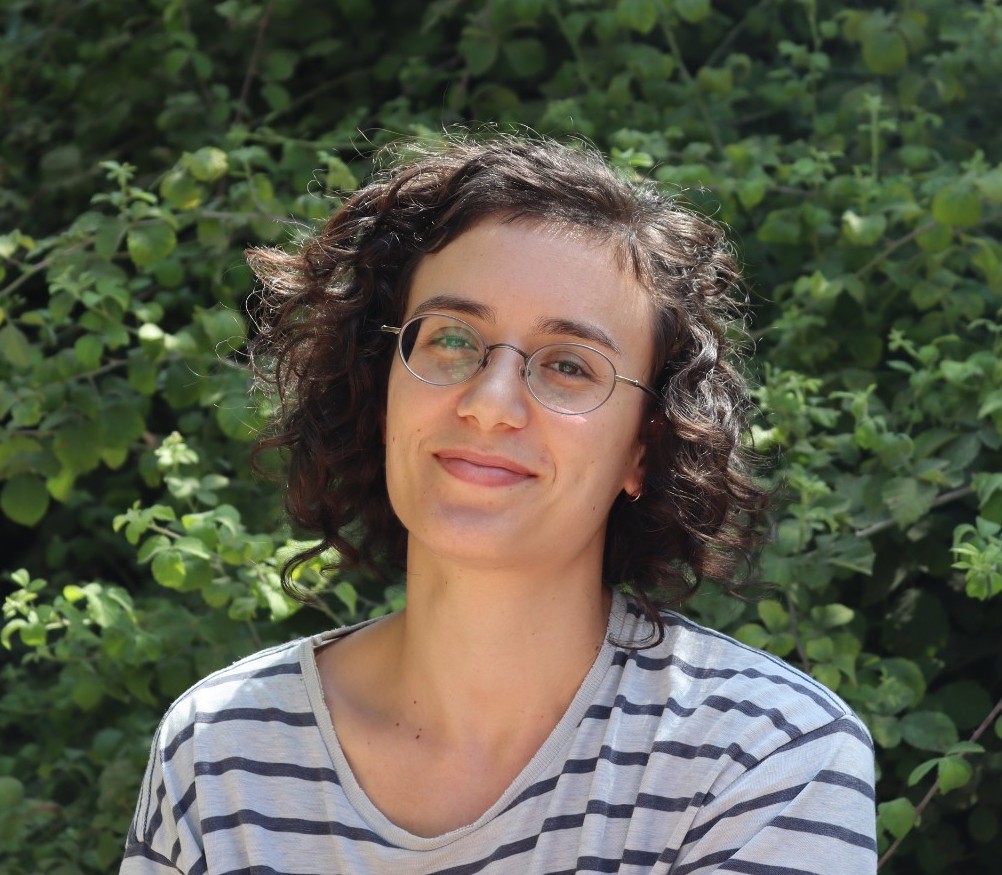
Maya Harari,
MSc. student
Thesis: Debt and aggression in microbial ecosystems
Graduated: 2022
Last seen: Moved to U. Washington in Seattle
I am an MSc. student at the Racah Institute of Physics at the Hebrew University, where I also did my BSc. in Physics and Computer Science. I am interested in complex systems, especially in ecology and biology, where most processes occur far from equilibrium. These dynamics permit our own existence and the stability of the ecosystems surrounding us. I am currently studying the role of aggression in microbial communities, using both numerical simulations and analytical techniques.
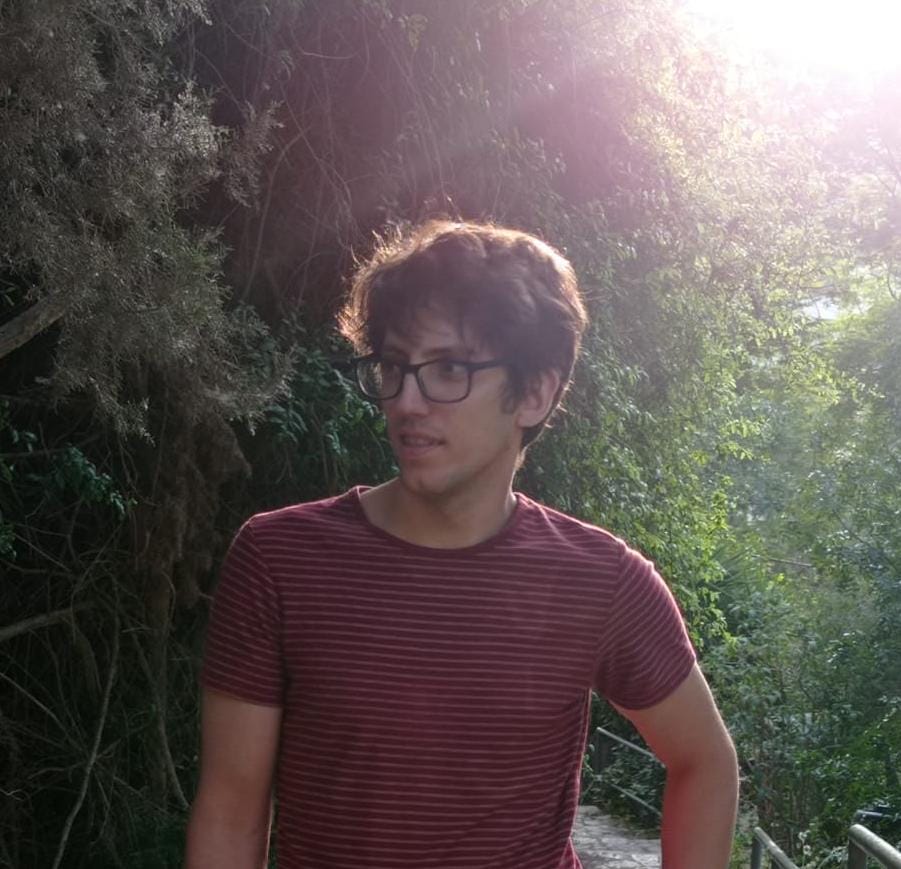
Or Hostezky,
MSc. student
Thesis: Adaptation, growth, and sensitivity in serial dilution co-cultures
Graduated: 2022
Last seen: Israeli tech industry
I am an MSc. student at the Racah Institute at the Hebrew University, and did my BSc. in biophysics. I’m interested in theoretical biophysics, mainly in evolution and emergent phenomena of ecosystem dynamics, and related areas such as non-linear dynamics and evolutionary game theory. I am currently working on microbial community structure and dynamics, specifically on coexistence and coevolution of species, using numerical simulations.
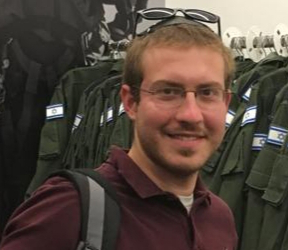
Aviad Berger,
MSc. student
Thesis: Loss of Diversity Transition in Microbial Systems
Graduated: 2022
Last seen: Medical Physicist, Hadassah Medical Center
I’m a master’s student at the Racah Institute of Physics at the Hebrew University of Jerusalem. I’m Interested in theoretical physics, more specifically in nonlinear physics and biological physics. I’m currently working on loss-of-diversity transitions in microbial communities.
Links: Linkedin
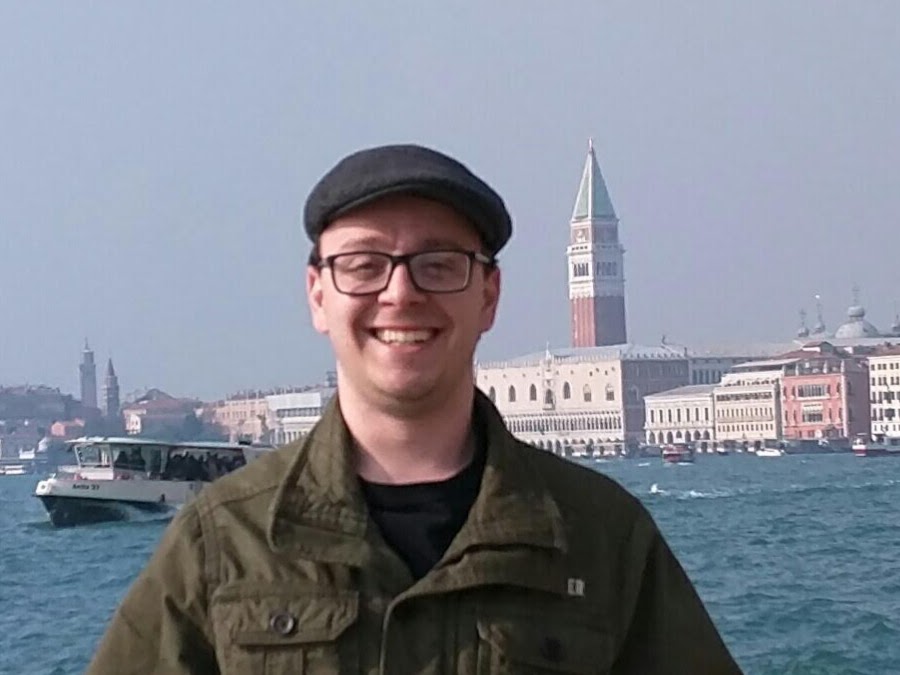
Guilherme Volpe Bossa, Ph.D.
Postdoc, Finished 2022
Last seen: Principal Investigator at the Instituto de Ciencias Físicas y Matemáticas, Universidad Austral de Chile
My research interests are in how the laws of physics can be used to give us a better understanding of processes of biological and technological interest. I obtained my PhD in Physics in 2017 and since then I have investigated a variety of scenarios, including antimicrobial peptides, lipid membranes, charged colloids, drug delivery, and supercapacitors.
Links: Linkedin, Google Scholar, ResearchGate, github
Undergraduate Research Assistants
- Maryana Puzin – Dynamics of metabolic regulation in microbes (2022-2023)
- Tal Raviv – Rhizosphere microbiome bioinformatics (2021 – 2022)
- Alon Markovich – Rhizosphere microbiome bioinformatics (2021 – 2023)
- Linoy Bushari – Rhizosphere microbiome bioinformatics (2022 – 2023)
- Yonathan Amir – COVID evolution sequence analysis (2021)
- Matan Goldstein – Inverstigate the Markov Clustering algorithm (2021)
- Dinna Tzur – Rhizosphere microbiome bioinformatics (2021)
- Ismail Qunbar – Stochastic two-cell simulations (2021 – 2022)
- Nitzan Saadon – Haematopoiesis single cell data analysis ( 2022 – 2022)
- Yotam Katz – COVID evolution sequence analysis ( 2022 – 2022)